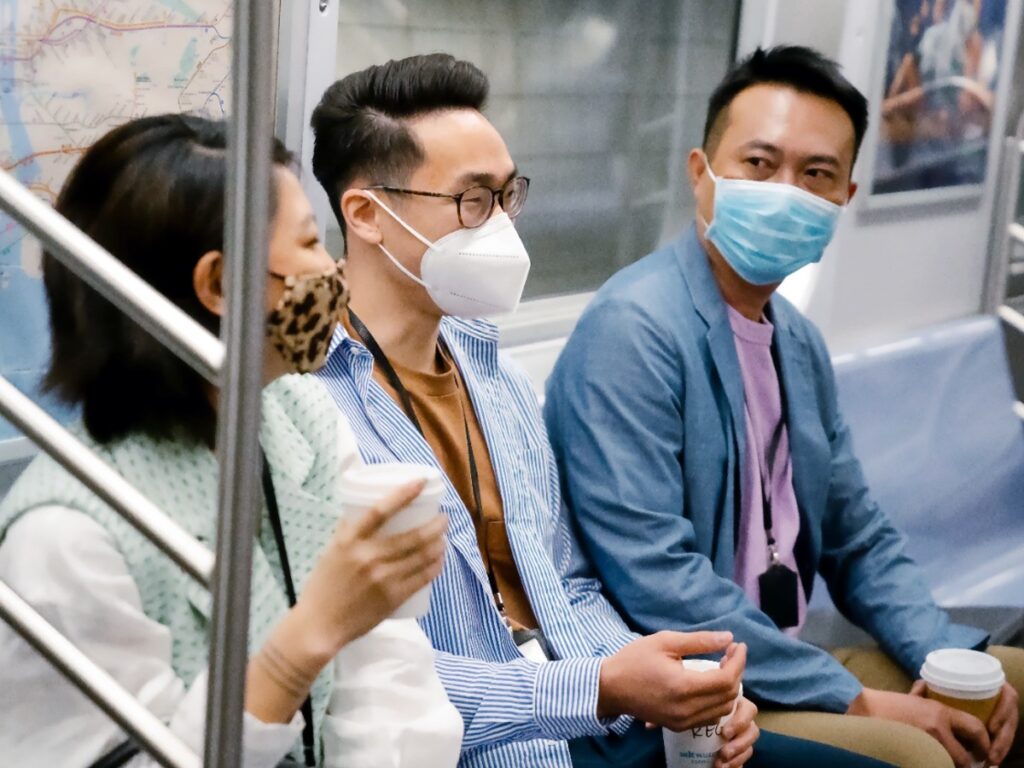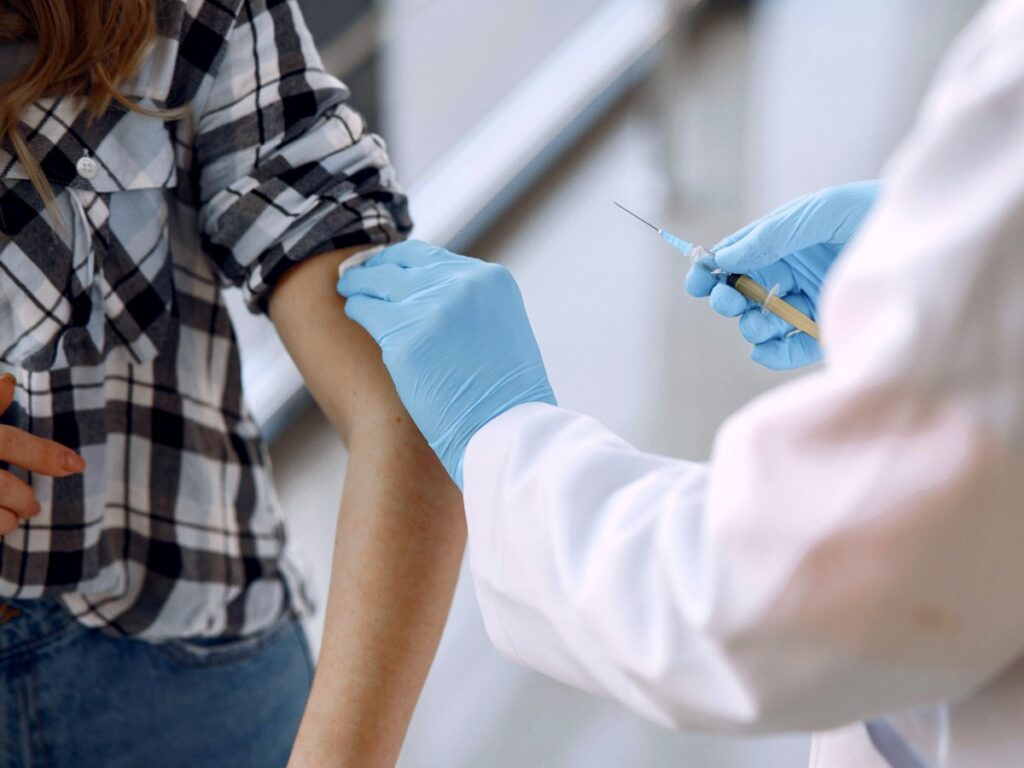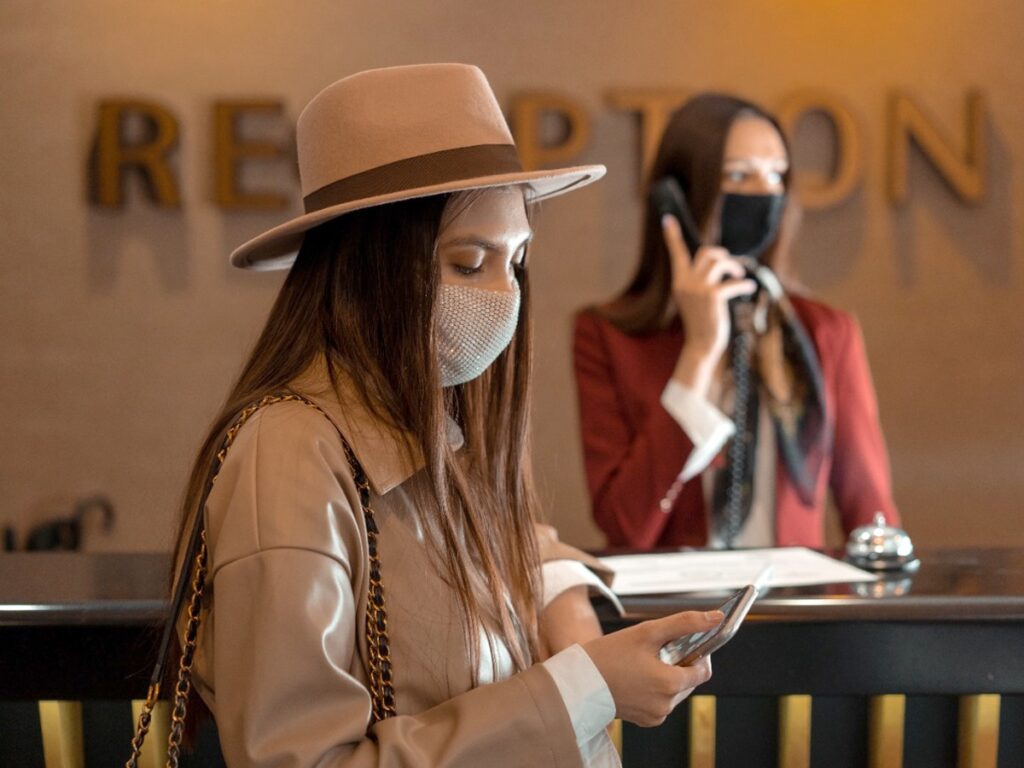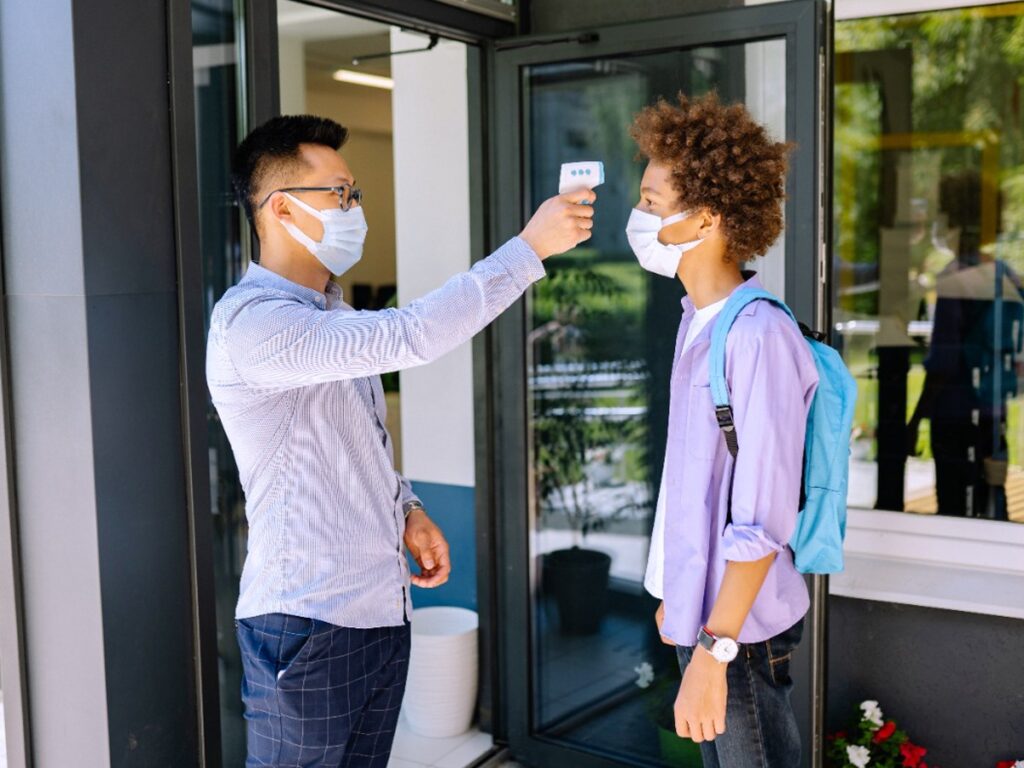Omicron’s First Appearance
A novel variety of SARS-CoV-2, B.1.1.529, was announced to the World Health Organization on November 24, 2021. (WHO). This new variety was discovered in samples taken in Botswana on November 11, 2021, and in South Africa on November 14, 2021.
The B.1.1.529 Omicron was recognized and designated as a Variant of Concern by WHO on 26th November 2021. (VOC). The United States declared Omicron as a Variant of Concern on November 30, 2021, and the very first reported case of Omicron in the United States was discovered on December 1, 2021.
As we continue to track Omicron’s progress, the CDC has been partnering with worldwide public health and industrial partners to understand more about it. CDC has been employing genetic monitoring to track variations of SARS-CoV-2, the virus that causes COVID-19, and guides public health management throughout the epidemic.
We don’t know how quickly it spreads, how serious the sickness it causes, or how effective available vaccines and treatments are at combating it.
In the United States of America, which all areas have been detected for the new virus?

The CDC is working with regional health officials to track Omicron’s growth. This map depicts the states where the Omicron variation has been linked to at least one instance of COVID-19 sickness. When Omicron can be reliably anticipated at a low frequency, it will be included in COVID Data Tracking system variant surveillance data.
Omicron Infection and Spread: What We Know
How easy is it for Omicron to spread?
This version of the Omicron virus is anticipated to spread more quickly than the original SARS-CoV-2 virus, albeit how quickly Omicron spreads in comparison to Delta is uncertain. As per the CDC, all those with Omicron infection is predicted to spread the virus to others, even if they are vaccinated and have no symptoms.
Is Omicron going to make you sicker?
More research is needed to determine whether Omicron infections, particularly reinfections and breakthrough infections in fully vaccinated people, cause more severe illness or mortality than infections with other variations.
Will Omicron vaccinations be effective?
The Omicron form of infection is anticipated to result in acute symptoms, illness, and deaths. Immunizations are currently available to guard against this. Breakthrough infections are more likely to arise in patients who have been fully immunized. Vaccines against other strains, such as Delta, have been shown to reduce severe illness, hospitalizations, and death. The latest Omicron development emphasizes the importance of immunization and booster injections even more.
Will there be any therapies for Omicron?
Scientists are trying to research and find out how effective is the current COVID-19 vaccines. Some medicines are likely to remain helpful despite Omicron’s changing genetic make-up, some may be less successful.
We’ve Got the Weapons to Fight Omicron

Vaccines to date are the most effective solution to protect people from the virus COVID-19, restricting transmission, and making the likelihood of new variants emerging very less. COVID-19 vaccines are extremely effective in reducing serious disease, hospitalization, and death. Omicron is now being investigated by scientists, who want to know how well completely vaccinated people will be protected from infection, hospitalization, and death. Everyone 5 years and older should get fully vaccinated against COVID-19, according to the CDC. Everyone over the age of 18 should obtain a booster shot at least two months after receiving their initial J&J/Janssen vaccine or six months after finishing their primary COVID-19 vaccination series from Pfizer-BioNTech or Moderna, according to the CDC.
Masks provide protection against all types of threats. Regardless of immunization status, the CDC continues to recommend wearing a mask in public indoor settings where community transmission is significant or high. For people who wish to learn more about what type of mask is best for them based on their circumstances, the CDC offers mask guidance.
You can find out if you’re infected with COVID-19 by taking a test. The Current virus is identified using two types of tests: nucleic acid amplification tests (NAATs) and antigen tests. Antigen and NAAT testing can only tell you whether you’re currently infected. The COVID-19 Viral Testing Tool can be used to help people figure out what kind of test they need. Additional testing would be required to determine if Omicron was the source of your infection. To find the most up-to-date local information on testing, go to the website of your state, tribal, local, or territorial health department.
Self-tests are simple to use and offer quick results. They can be performed at home or anywhere. If your self-test is positive, stay at home or isolate yourself for 10 days, wear a mask if you come into touch with people, and inform your healthcare practitioner. Call your healthcare practitioner or the public health agency if you have any queries regarding your self-test result.
What the CDC is Doing to Find Out More About Omicron

Characteristics of the Virus
Scientists from the CDC are collaborating with other organizations to collect data and virus samples that can be used to address key questions concerning the Omicron variety. Experiments in science have already begun. The Centers for Disease Control and Prevention (CDC) will provide updates as soon as they are available.
Variant Surveillance is a type of surveillance that uses a variety of methods.
In the United States, the Centers for Disease Control and Prevention (CDC) uses genomic surveillance to track mutations of SARS-CoV-2, the virus that causes COVID-19, in order to better recognize and respond to these findings in order to protect the public’s health. The National Center for Biotechnology Information external icon (NCBI) and the Global Initiative on Sharing Avian Influenza Dataexternal icon have established multiple ways to connect and share genomic sequence data produced by the CDC, public health laboratories, and commercial diagnostic laboratories within publicly accessible databases maintained by the National Center for Biotechnology Information external icon (NCBI) and the Global Initiative on Sharing Avian Influenza Dataexternal icon (GISAID). There is a >99 percent likelihood that a variation circulating at 0.1 percent frequency will be found in the CDC’s national genomic surveillance.
To better understand the omicron variety, the CDC has focused on an anime convention. At the time, nothing is known about the omicron variety, with researchers all over the world trying to piece together early data from its distribution. As part of its effort to better understand the hazards of the Covid-19 omicron form, the CDC has reached out to tens of thousands of people who attended a recent anime convention in Manhattan.
CDC Director Dr. Rochelle Walensky said at a White House press briefing Tuesday that the agency is considering using the convention, which took place Nov. The meeting, which was accompanied by a Minnesota man who later came back positive for omicron, was held Nov. 19-21 to gather information on the variant’s transmissibility.
At the time, nothing is known about the omicron variety, with researchers all over the world trying to piece together early data from its distribution.
“More than 34,000 of the reported 54,000 guests have been contacted and counting to urge all attendees to participate in testing,” Walensky stated. “Information from this analysis done could be very useful and provide one of the very first insights into the transmissibility of variation in the United States,” says the researcher.
The information that was collected at the anime convention could be especially important in determining how the omicron variation will affect people in the United States.
“Right now, we’re depending on the research that’s been coming out of other areas, mainly South Africa so far,” said Janet Baseman, a teacher in the University of Washington’s Department of EpidemiologyIn South Africa, which has poorer vaccination coverage and a larger percentage of its population infected with HIV than the United States, the dynamics of the infection could be substantially different, according to Fauci.
Omicron’s emergence was ‘inevitable’:
President Cyril Ramaphosa of South Africa has advised people to be vaccinated and take steps to protect communal safety rather than waiting for harsher lockdown laws.

According to President Cyril Ramaphosa, who called the spike in infections a “deep concern,” the fourth COVID-19 wave was anticipated in South Africa, and the advent of the new Omicron type was unavoidable.
While the increase in infections is alarming, we should keep in mind that we expected it. In his weekly address to the nation on Monday, Ramaphosa stated that “disease modelers in our country have advised us that we will probably certainly have the fourth wave around this time” and that “new strains of the virus will almost certainly emerge.”
“The rate at which we’re witnessing these viruses since the pandemic began as the world enters the fourth wave.” According to him, the Omicron variant, which was brought to the world’s attention by South African scientists around two weeks ago, is now sweeping new infections in most regions.
The reasons to get vaccinated become stronger and the need gets more urgent as time passes and illnesses rise. Vaccines are safe, and, like all other routine immunizations we received as children, they provide the most effective form of protection against diseases like measles, he said.
Vaccination is also important for the country’s economic recovery, according to Ramaphosa, because as more people are protected, more chances for economic growth will open up.
“We don’t see a lot of folks with life-threatening conditions.” “It could be less severe in reality,” Fauci said, noting the hospitalization-to-new-case ratio. He noted that the severity data is still in its infancy and is based on a younger group. Over the next two weeks, he predicted, researchers would have a clearer picture.
We will be able to work and socialize with fewer limitations, and our lives will return to a state of normalcy. As individuals, we must carefully weigh the risks of being unvaccinated, as well as the risk of spreading the sickness to our children, parents, relatives, coworkers, and others we do not even know, according to Ramaphosa.
South Africa is now on Level One of its five-level lockdown policy, but talk is rife that it may be raised this week as the number of illnesses continues to rise.
Ramaphosa said a meeting of the council for the COVID intake will be held soon to assess the pandemic’s progress and how things will be taken forward.
Recommended Actions for People
- The most effective steps individuals can take to reduce the spread of the COVID-19 virus is to:
- Keep a physical distance of at least 1 meter from others;
- Wear a well-fitting mask;
- Open windows to improve ventilation;
- Avoid poorly ventilated or crowded spaces;
- Keep hands clean;
- Cough or Sneeze into a bent elbow or tissue,
- And get vaccinated when it’s their turn.
WHO will continue to provide updates as more information becomes available, including following meetings of the TAG-VE. In addition, information will be available on WHO’s digital and social media platforms.
With the new year approaching start by taking care of your health and you can read some of our other blogs like how to boost your immune system.

Dear Readers,
Vogue Wellness just kicked off as a health and wellness blog, striving to provide up-to-date and unbiased information and advice on Healthcare around the world that are of interest to its readers, and have wider political and economic implications. Your encouragement and constant feedback on how to improve our offerings will make our commitment to these efforts stronger. Even during these difficult times arising out of COVID-19, we continue to remain committed to you, keeping you informed and updated with Health and Wellness news around the world. We request you to stay at home and follow precautionary measures and government guidelines to save your life, and also those around you during these testing times.
We, however, have a request.
As we battle the economic impact of the pandemic, we need your support even more, so that we can continue to offer you more quality content. Our free subscription model has received an encouraging response from the readers, who have subscribed to our online blog. We expect more subscriptions to our online blog to achieve the set goals so that we can offer you better and more relevant content. We believe in fair and credible Content creation and publish wisely. Your full support can help us take forward this blog experience with a guarantee of unbiased views/original contents/up-to-date information to which we are committed.
Subscribe to Vogue Wellness-Where health thrives…If you like the content please do share.
Disclaimer: As a service to our readers, the Vogue Wellness portal provides access to our library of archived content. Please note the date of the last review or update on all articles. No content on this site, regardless of date, should ever be used as a substitute for direct medical advice from your doctor or other qualified clinicians.


